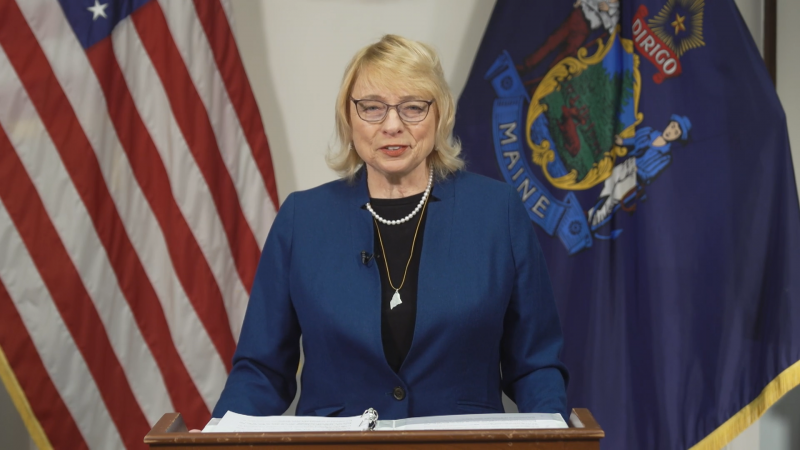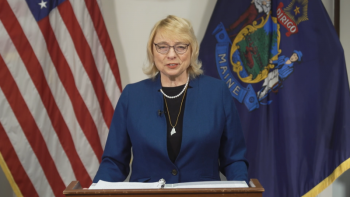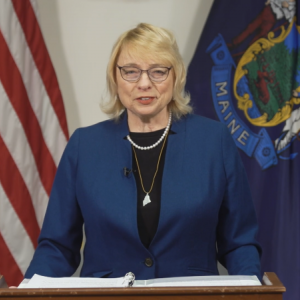Governor announces plan to strengthen child welfare system
AUGUSTA — Governor Janet Mills unveiled bipartisan legislation Monday to strengthen the Office of the Child Welfare Ombudsman and announced forthcoming key budget initiatives to bridge gaps in the child welfare workforce, implement recent child welfare recommendations, and improve child safety in Maine.
“Every child in Maine deserves to grow up in a safe and stable environment that provides them with every opportunity for success,” said Gov. Mills. “This is why my Administration is working to address the underlying issues that often contribute to child abuse and neglect, like substance use disorder and poverty, and to improve Maine’s child welfare system overall.”
The legislation solidifies the Ombudsman’s authority to hire additional staff at their discretion, increases the length of the Ombudsman’s term from one to five years, requires the Department of Health and Human Services to continue its practice of informing the Ombudsman of any statewide policy changes before they take effect, and codifies into law the Department’s existing practice of notifying the Ombudsman of any child fatality with child welfare involvement.
The Governor will also propose measures in her forthcoming supplemental budget to hire additional staff, provide health coverage for staff, and allow for additional office space.
The legislation is supported by Maine’s Child Welfare Ombudsman and is sponsored by Senator Ned Claxton (D-Androscoggin) and cosponsored by Senator Marianne Moore (R-Washington), Representative Michele Meyer (D-Eliot), and Representative Kathy Javner (R-Chester), the Chairs and Leads of the Legislature’s Health and Human Services Committee.
The Governor further announced several initiatives in her forthcoming supplemental budget to implement timely recommendations from Maine’s Child Welfare Ombudsman, nationally recognized experts at Casey Family Programs, and proposals from the Maine Child Welfare Advocacy Network, the Maine Child Welfare Advisory Panel, and Maine lawmakers.
They include:
Filling key staffing gaps: Moments of family crisis that require action from Child Protective Services often occur on nights and weekends. Yet, these shifts are typically covered by staff on overtime. Staff have repeatedly indicated that the after-hours, weekend, and stand-by shifts significantly impact their ability to effectively complete their work and contribute to staff turnover. To address this, the Governor’s supplemental budget will propose adding 16 caseworkers and three caseworker supervisors dedicated to night and weekend shifts, as well as additional support staff at the Office of Child and Family Services (OCFS) and a new Regional Associate Director dedicated to supporting policy and training, which is in line with the Ombudsman’s call for additional training of caseworkers. The supplemental budget will also add safety-science staff to review of cases in which a child is harmed in an ongoing manner rather than only after a child death occurs. This science-safety model was deployed after a review of Maine’s child welfare system by Casey Family Programs and attempts to shift the paradigm away from reactionary responses to ongoing policy improvements based on better understanding how complex systems operate, including the perspectives of those who operate within such systems. The budget request is for $3 million, including federal funds.
Extending the Homebuilders Program to support families during reunification: The Homebuilders model supports successful family reunification including training and preparation for the safe and smooth transition of a child back into the home setting. It focuses on intensive, in-home crisis intervention, counseling, and life-skills education to teach families problem-solving skills that will support successful reunification and prevent the need for out-of-home care in the future. This evidenced-based model was supported by stakeholders in developing Maine’s Family First Preventive Services Plan and aligns with recommendations from the Ombudsman and MCWAN. This $2.2 million budget initiative, including Federal matching payments, would complement the implementation of the Homebuilders Program for families where the children are at risk of entering State custody.
Expanding Family Visit Coaching: Building on a successful pilot, Family Visit Coaching provides families with in-depth training and support focused on parent-child interaction. This program is intended to facilitate contact between parents and children when children are in State custody after being removed from a home. Additionally, it helps parents develop skills to better understand the emotional and behavioral needs of their children while strengthening the attachment and relationship and providing an opportunity for parents to demonstrate their ability to meet these needs during coaching sessions. This $2 million budget initiative addresses the Ombudsman’s recommendation to enhance services to prevent re-entry of children into state custody.
Creating a Parent Mentor Program to improve engagement of parents: The Governor’s supplemental budget proposal will also include a $200,000 initiative to employ parents who have lived experience with the child welfare system to develop an evidence-based parent mentor program to encourage parents to constructively engage with the Maine Department of Health and Human Services, advise on the development of policy, and assist in training new caseworkers. Almost all reviews of the child welfare system have found that lack of parental engagement with caseworkers, which in most circumstances is voluntary, leads to worse outcomes for children and families.
Including funding to strengthen the Office of Maine’s Child Welfare Ombudsman, these proposed budget initiatives would invest approximately $8 million in improving the child welfare system in Maine.
Anyone concerned about child abuse or neglect should call the Department’s 24-hour hotline at 1-800-452-1999. Calls may be made anonymously.

























